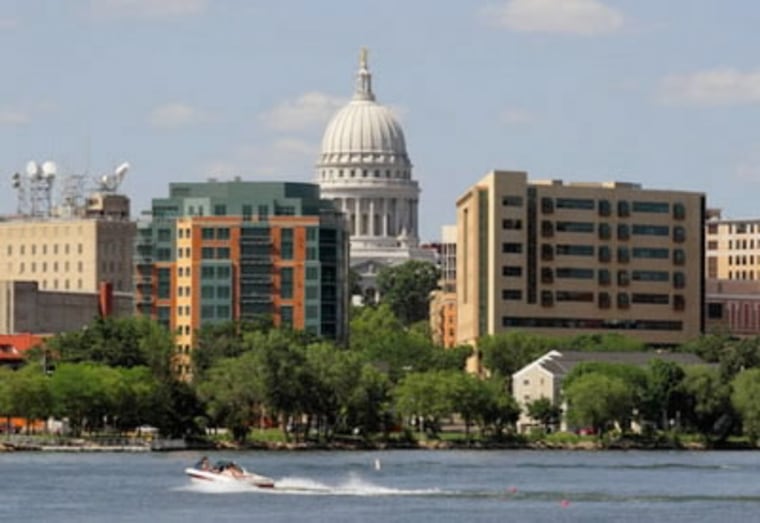Having trouble finding a job in, say, New York City or South Florida? You might give Madison, Wis., a try. It's got an unusually healthy outlook for job growth and a strikingly low unemployment rate — 3.5 percent in October, when the national rate was 6.5 percent.
That's why Madison tops Ajilon Professional Staffing's list of top 10 cities to find a job. To compile the list, Ajilon's researchers started by examining the Bureau of Labor Statistics' Metropolitan Area Jobs Report, published in October, to find the cities with the lowest unemployment rate and highest number of new jobs created in the previous six months. They then combined that data with other evidence from their offices throughout the country to discover why these cities have the best job situations.
Madison has several things going for it. Not only is the University of Wisconsin a major employer, but the university's research arm, the Wisconsin Alumni Research Foundation, has been fueling growth in the biotech, health care and medical-devices industries. The foundation provides grants and helps scientists affiliated with the university to patent new discoveries. It has aided Madison in becoming a regional hub for those industries.
"Wisconsin greatly benefits from having a really wide range of companies, from start-up to mature, leaving us less dependent on only large or small employers to keep our economy and job market booming," says Alise Wozniak, Madison branch manager of Adecco General Staffing. A spokeswoman for the city's chamber of commerce adds that Madison is "historically recession proof," partly because it's the seat of state and county governments, as well as city, and they all provide jobs.
Most of the cities on the list benefit from plentiful government jobs, but none more than Washington, D.C. Government is that town's largest employer. Even more jobs have been created since the wars in Iraq and Afghanistan were launched and the Department of Homeland security was born, all during the Bush administration.
Washington is also bolstered by its many nonprofits, defense contractors, professional associations and law firms. Education plays a significant role too: Schools are the third largest employer in the city, and 30,000 new education jobs are forecast for the next year.
Baltimore piggybacks on Washington's wealth of government jobs. "One explanation for Baltimore's low unemployment is its proximity to the capital," says Janette Marx, a senior vice president at Ajilon. "It has a lot of commuters going to D.C., and many companies in defense spending and government contractors have moved to Baltimore."
Boston is another bright spot. The area's hospitals, research institutions and universities together drive the city's economy. They also provide a ready-made highly educated workforce, which draws a growing number of biotech, software and clean technology companies to the city.
And Boston's financial sector wasn't hit as hard by the subprime mortgage crisis as New York's. The city lost about 900 financial industry jobs; New York gave up thousands. Boston is home mostly to deposit banks, hedge funds and trust services, which were able to avoid many of the problems that plagued the large financial institutions in New York.
You might be surprised that Pittsburgh made the list, since it's popularly viewed as an old steel and manufacturing city. Its biggest bright spot is health care. The University of Pittsburgh Medical Center employs more than 40,000 people. Health care is a very strong industry in Pittsburgh, and technology, education and banking are all robust there too.
In fact, says Janette Marx, "Companies are still having a hard time identifying talent. There are not enough people to fill the jobs."
If Madison sounds a little chilly in winter, how about Pittsburgh?
